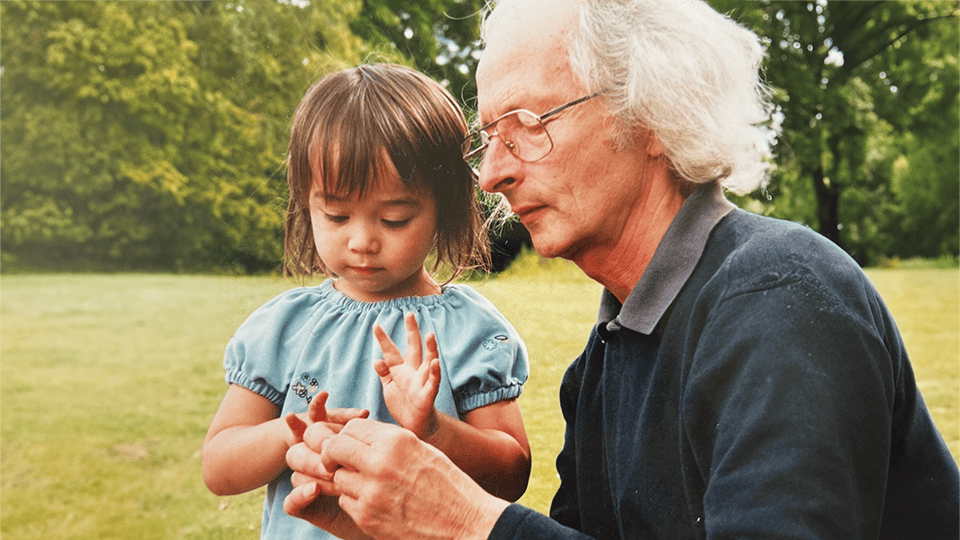
Saïna’s story – A song for my beloved grandpa, Ralph
Saïna opens up about how her grandfather’s dementia has affected her, and how songwriting has provided a release.
Aromatherapy is a complementary therapy that is used to promote wellbeing through scent. We take a look at how it might help people with dementia.
Aromatherapy is an ancient practice that uses scented essential oils from plants, flowers, herbs and trees to improve mental and physical health.
It works by stimulating the olfactory receptors – the cells responsible for our sense of smell – that in turn stimulate the parts of the brain that relate to our wellbeing.
For example, lavender oil is considered to promote sleep; lemon balm, when used as a lotion, is thought to induce feelings of calm; and eucalyptus oil is good for cold symptoms.
The oils can be added to baths, sprinkled on pillowcases and tissues, warmed in an oil burner or massaged into the skin, combined with a ‘carrier oil’ like grapeseed or almond oil.
Aromatherapy is considered to have health benefits including:
Some small studies have been conducted into aromatherapy and dementia. They have shown some encouraging results.
For example, there is some evidence that lavender, bergamot and lemon balm may all help to:
More research is needed into these areas – and like other complementary therapies, aromatherapy is not a replacement for medical treatment.
It should only be used if it appears to bring some pleasure or calm to the person being treated.
If you have any questions or concerns relating to dementia, call our free Dementia Helpline on 0800 888 6678 (Monday-Friday 9am-9pm, Saturday and Sunday 9am-5pm), email helpline@dementiauk.org or you can book a virtual appointment with an Admiral Nurse via phone or video call.
Our free, confidential Dementia Helpline is staffed by our dementia specialist Admiral Nurses who provide information, advice and support with any aspect of dementia.

Saïna opens up about how her grandfather’s dementia has affected her, and how songwriting has provided a release.

Ricky’s talks about how his Gran’s dementia diagnosis impacts his whole family and why he is supporting the ‘We live with dementia’ campaign.

As a carer for her mum, who has vascular dementia, Clare is taking part in our ‘We live with dementia’ campaign to make more people aware of the support our nurses offer.